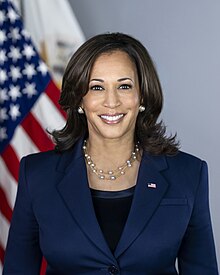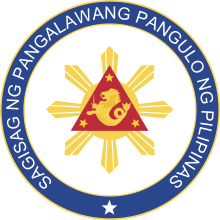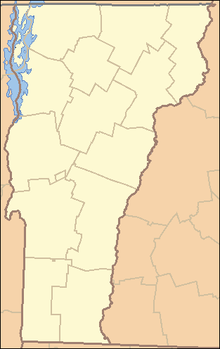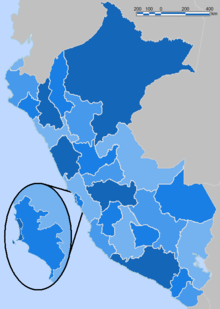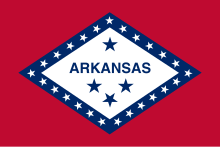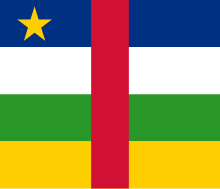Portal:Politics
| Main | Topics and categories | Tasks and projects |
The Politics portal
Politics (from Ancient Greek πολιτικά (politiká) 'affairs of the cities') is the set of activities that are associated with making decisions in groups, or other forms of power relations among individuals, such as the distribution of resources or status. The branch of social science that studies politics and government is referred to as political science.
It may be used positively in the context of a "political solution" which is compromising and non-violent, or descriptively as "the art or science of government", but also often carries a negative connotation. The concept has been defined in various ways, and different approaches have fundamentally differing views on whether it should be used extensively or in a limited way, empirically or normatively, and on whether conflict or co-operation is more essential to it.
A variety of methods are deployed in politics, which include promoting one's own political views among people, negotiation with other political subjects, making laws, and exercising internal and external force, including warfare against adversaries. Politics is exercised on a wide range of social levels, from clans and tribes of traditional societies, through modern local governments, companies and institutions up to sovereign states, to the international level.
In modern nation states, people often form political parties to represent their ideas. Members of a party often agree to take the same position on many issues and agree to support the same changes to law and the same leaders. An election is usually a competition between different parties.
A political system is a framework which defines acceptable political methods within a society. The history of political thought can be traced back to early antiquity, with seminal works such as Plato's Republic, Aristotle's Politics, Confucius's political manuscripts and Chanakya's Arthashastra. (Full article...)
Selected article
The Hungarian Revolution of 1956 was a spontaneous nationwide revolt against the Neo-Stalinist government of Hungary and its Soviet-imposed policies, lasting from 23 October until 10 November 1956. It began as a student demonstration which attracted thousands as it marched through central Budapest to the Parliament building. The revolt spread quickly across Hungary, and the government fell. Thousands organized into militias, battling the State police force and Soviet troops. The new government formally disbanded the State police force, declared its intention to withdraw from the Warsaw Pact and pledged to re-establish free elections. On 4 November, a large Soviet force invaded Budapest using artillery and air strikes, killing thousands of civilians. Organized resistance ceased by 10 November 1956, and mass arrests began. An estimated 200,000 Hungarians fled as refugees. By January 1957 the new Soviet-installed government had suppressed all public opposition. Soviet actions alienated many Western Marxists, yet strengthened Soviet control over Eastern Europe, cultivating the perception that communism was both irreversible and monolithic. Public discussion about this revolution was suppressed in Hungary for over 30 years, but since the thaw of the 1980s it has been a subject of intense study and debate.
Featured picture

Annkathrin Kammeyer (born 1990) is a German Social Democratic politician. She became a Member of the Hamburg Parliament on 7 March 2011, the youngest person ever elected to that body.
Selected quote
Selected biography

Eli Daniel Bebout (born October 14, 1946) is an American athlete and politician who served in the Wyoming House of Representatives from a multi-member district in Fremont County and the 55th district from 1987 to 2001, and later served in the Wyoming Senate from the 26th district 2007 to 2021, as a member of the Democratic and Republican parties. He was the first person to serve as both Speaker of the Wyoming House of Representatives and President of the Wyoming Senate
Did you know (auto-generated) -

- ... that in 1946, Margrethe Parm was appointed the director of a women's prison that had been used as a political prison during the German occupation of Norway?
- ... that Philipp Tanzer has been an army medic, artist, firefighter, hairdresser, massage therapist, festival organiser, political candidate and gay porn star?
- ... that Australian senator Ben Small had been a ship's officer, bar owner, paramedic, ambulance trainer, and logistician before entering politics?
- ... that thousands of political prisoners in Indonesia were interned in the Waeapo River valley in Buru?
- ... that Disney once created a political advertisement for Dwight D. Eisenhower (featured)?
- ... that the historian and political journalist Lancelot Lawton addressed a House of Commons committee in London in 1935, beginning: "The chief problem in Europe to-day is the Ukrainian problem"?
More did you know...
- ...that in the 1930s, Australia was home to a paramilitary Fascist organization called the New Guard?
- ...that Matt Taibbi's book Griftopia has been described as a "necessary ... corrective" to the assertion that bubbles are an inevitable part of the market economy?
- ...that in the book Net.wars, author Wendy M. Grossman attributes Internet conflict in the 1990s to culture shock from an influx of users?
- ...that former California Assembly Republican Leader and California Republican Party Chair Robert W. Naylor was editor of The Stanford Daily while he was a student at Stanford University?
- ...that although U.S. President Barack Obama is Christian, high-ranked al-Qaida member Ayman al-Zawahiri has falsely claimed that Obama secretly "pray[s] the prayers of the Jews"?
- ...that Roman embassies to China are reported in Chinese historical accounts from as early as 166?
In this month
- May 5, 2005 – A General Election in the United Kingdom sees Tony Blair's Labour government returned to office with a reduced majority of 66.
- May 14, 1948 – The Declaration of Independence of Israel is made.
- May 18, 1948 – The first Legislative Yuan of the Republic of China officially convenes in Nanking.
News and Current events
- August 11: 4 local government areas in New South Wales, Australia locked down after COVID-19 case
- August 11: Australia: AstraZeneca vaccine access expanded by Victorian government
- August 1: Australia: Victorian lockdown lifted
- July 29: Tunisia's president dismisses prime minister, suspends parliament
- July 25: Australia: Wikinews interviews Reg Kidd, mayor of the City of Orange, about COVID-19 lockdown and local government
- July 23: South Australia enters week-long lockdown to contain COVID-19 Delta variant spread
- July 21: Technological University Dublin senior lecturer Dr Lorcan Sirr speaks to Wikinews on housing market in Ireland
- July 21: Three rural councils in New South Wales, Australia enter 7-day lockdown
- July 21: Australia: Victoria lockdown extended by a week with 85 active cases recorded
- July 15: California governor signs new state budget, eligible Californians to get stimulus payments
Topics and categories
General images
Related portals
Associated Wikimedia
The following Wikimedia Foundation sister projects provide more on this subject:
-
Commons
Free media repository -
Wikibooks
Free textbooks and manuals -
Wikidata
Free knowledge base -
Wikinews
Free-content news -
Wikiquote
Collection of quotations -
Wikisource
Free-content library -
Wikiversity
Free learning tools -
Wiktionary
Dictionary and thesaurus




